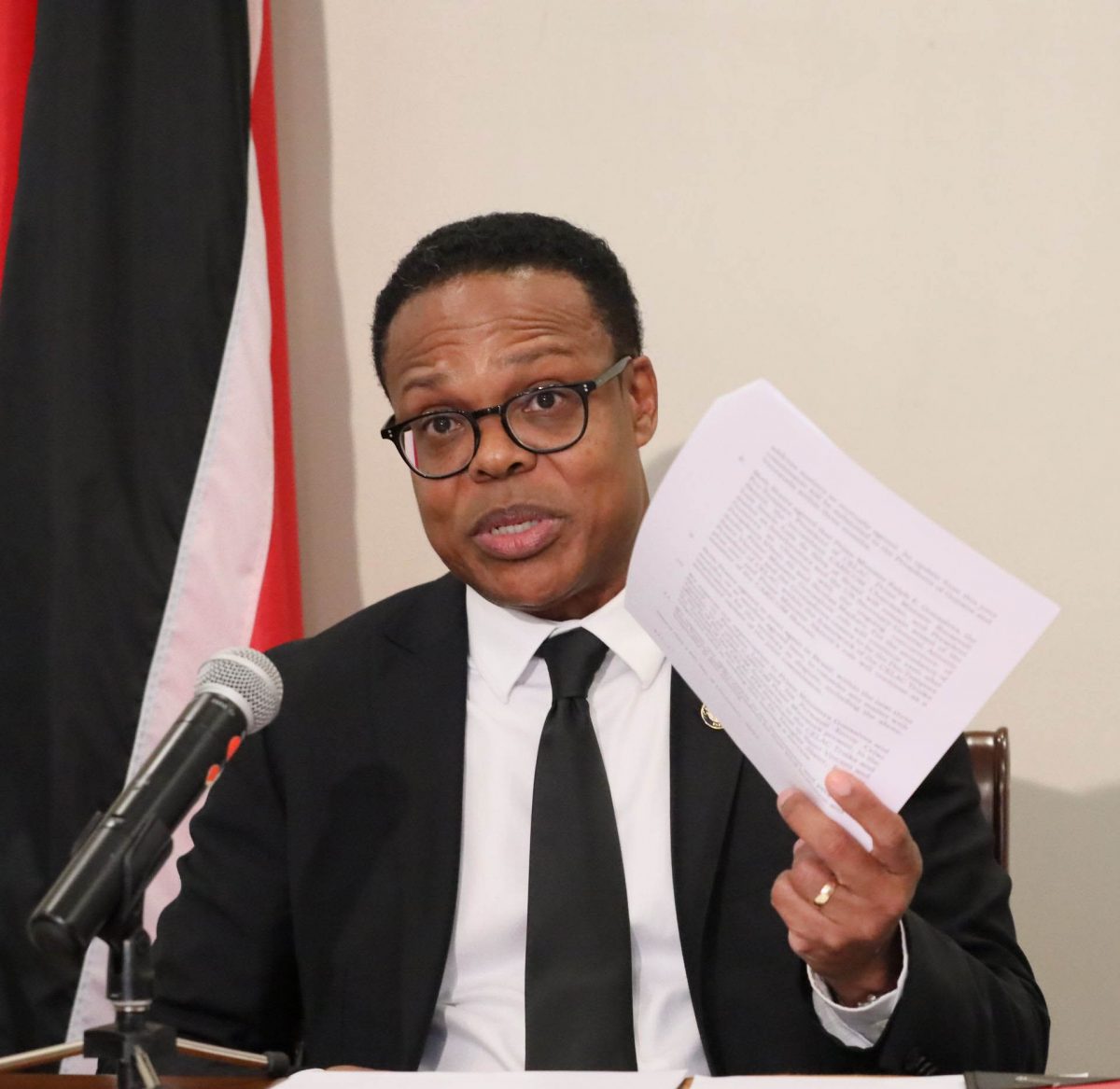(Trinidad Guardian) Foreign and Caricom Affairs Minister Dr Amery Browne says the Argyle Agreement signed in St Vincent and the Grenadines between Guyana and Venezuela on Thursday, was a moment for the Caribbean Community to shine.
Speaking at a media conference at the ministry’s St Clair, Port-of-Spain headquarters yesterday, Dr Browne also made it clear that Prime Minister Dr Keith Rowley was very involved in the discussions in Argyle that led to the Joint Declaration of Argyle for Dialogue and Peace Between Guyana and Venezuela.
He said Rowley was, at various times throughout the sessions, either redirecting the conversation to the matter at hand or offering direct comment on issues raised.
This is in the face of repeated Opposition criticism of the Prime Minister for failing to lead an attempt at mediation in the Essequibo dispute between Guyana President Irfaan Ali and Venezuela President Nicolas Maduro.
Browne classified Thursday’s meeting as a “key moment for Caricom” but admitted that even he did not initially predict such an outcome.
“Expectations were low, but those expectations were exceeded, and I would want to credit our regional family, and as I said, in the beginning, this was a key moment for Caricom,” Browne said.
As for the structure of the meeting, Browne said Caricom heads first met without the observers and without Presidents Ali or Maduro to establish the tone for the meeting. They then invited President Ali and his delegation into the meeting and President Maduro was then invited in to talk with the Caribbean heads. It was after these two sessions that Ali and Maduro were both invited in, and came face-to-face with each other for the first time since the border tensions first escalated.
Browne acknowledged there was an awkwardness when both men first met, but that soon gave way to a significantly thawed, if not warm interaction between the two by the end of the day.
He also noted that President Maduro was vocal in his appreciation of the opportunity to speak to Caricom directly about Venezuela’s concerns.
However, on the issue of Maduro’s willingness to play by the rulebook, Browne would not be drawn into comment, saying he found that the Venezuela leader demonstrated a “degree of respect for the process”.
Browne noted that Guyana-Venezuela conflict was not solved in St Vincent and the Grenadines. Rather, he described it as a pathway to future dialogue being established.
Contacted yesterday on the outcome of the meeting, Dr Bishnu Ragoonath, who lectures in Political Science at UWI, cautioned that the Venezuelan President may be limited in his ability to adhere to the agreement, especially if it does not find favour with the rest of his party executive.
“You have a Nicolas Maduro, but you also have a Cabinet, an Executive in Venezuela he may have to rein in if he wants to abide by the ruling of the agreement,” Ragoonath said.
Also commenting on the outcome of the meeting, Professor Anthony E. Bryan, the former head of the Institute of International Relations at UWI, St Augustine, said the Government’s approach in the matter was wise.
“Managing these multi-faceted issues is no simple task for any administration. Yet, by anchoring T&T’s position in universally recognised principles (UN), alignment with Caricom, and continuing to deal with Venezuela, where we have a special relationship because of proximity, kith and kin, history, resources, etc., plus supporting our close cousins the Guyanese…is a testament to our diplomatic capacity and a demonstration of the manner in which a small state can deal with complex geopolitical issues with integrity as it walks a diplomatic, political, and economic tightrope,” Prof. Bryan said.
Foreign and Caricom Affairs Minister Dr Amery Browne holds the Joint Declaration of Argyle for Dialogue and Peace between Guyana and Venezuela at his ministry in St Clair yesterday.










